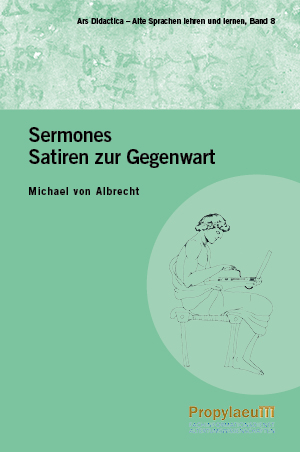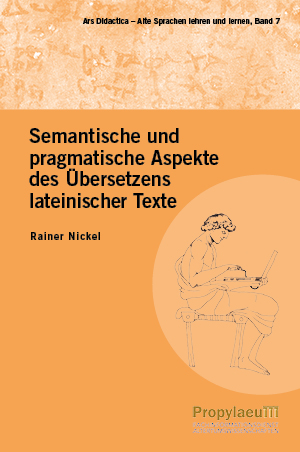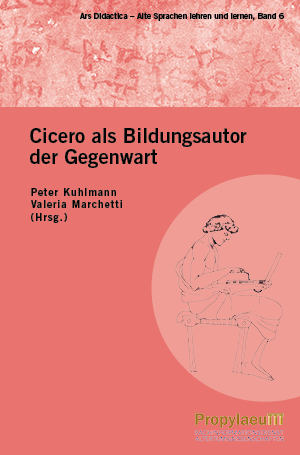Ars Didactica
Alte Sprachen lehren und lernen
Alte Sprachen lehren und lernen
Ars Didactica. Teaching and Learning Classical Languages is a forum for concepts and suggestions for teaching and learning Latin and Greek in schools and universities. The aim is to make learning of Latin and Greek and the studies of their often breathtaking and provoking literature attractive. The collection contains books about didactics and methods of effective teaching and good practice in classics, textbooks, grammars, workbooks and text editions.
Editors
Hans-Joachim Glücklich
Ivo Gottwald
Rainer Nickel
Felix M. Prokoph
Published so far
SERMONES. Satiren zur Gegenwart: Lateinisch und Deutsch
Michael von Albrecht's Sermones are satires on contemporary problems and modern society, written in Latin and accompanied by a German translation. Among the topics there are: man's curiosity, astronauts, our wasteful use of food, keeping dogs, research on the future development of human society, environmental protection, corona, nuclear wars, search for truth, old age, and the scourge of publicity.
Comprehensive education, elegance of style, and a humane wit conspire to create a reading experience. These satires combine literary art and good entertainment. Being both artistic and delightful, they reveal a critical mind as well as a deep empathy with human life. They might be called, therefore, an ARS DIDACTICA HUMANA. Articles by Hans Joachim Glücklich and Michael Lobe inscribe Michael von Albrecht's name into the tradition of satire and help those interested recognize and enjoy the delicacy of style and allusions. Furthermore, they give advice on how to read and understand the Latin text even with a rather rudimentary knowledge of Latin.
Semantische und pragmatische Aspekte des Übersetzens lateinischer Texte
The description of semantic and pragmatic aspects for interpretation and translation of Latin texts is based on a contrastive presentation of a multitude of examples selected from classical Latin texts and their translations into German. Thus the user is directly confronted with the differences and correspondences with regard to Latin and German speech.
Cicero als Bildungsautor der Gegenwart
Cicero’s works are still often used in Latin instruction. In November 2018, a conference organized by the Göttingen Collaborative Research Center ”Education and Religion“ examined the pedagogical value of Cicero’s philosophical works in particular.
The results of that conference are presented here and include contributions from instructors throughout Germany as well as Austria and Italy. These essays pursue both diachronic and synchronic aspects of reading Cicero in the classroom, as well as the significance of Cicero's works as examination texts. They show how Cicero’s works can be considered teaching texts in two ways: While Cicero has a canonical status for Latin teaching today, he also saw himself as an educator in his own day, concerned with cultivating humanitas in his readers.









